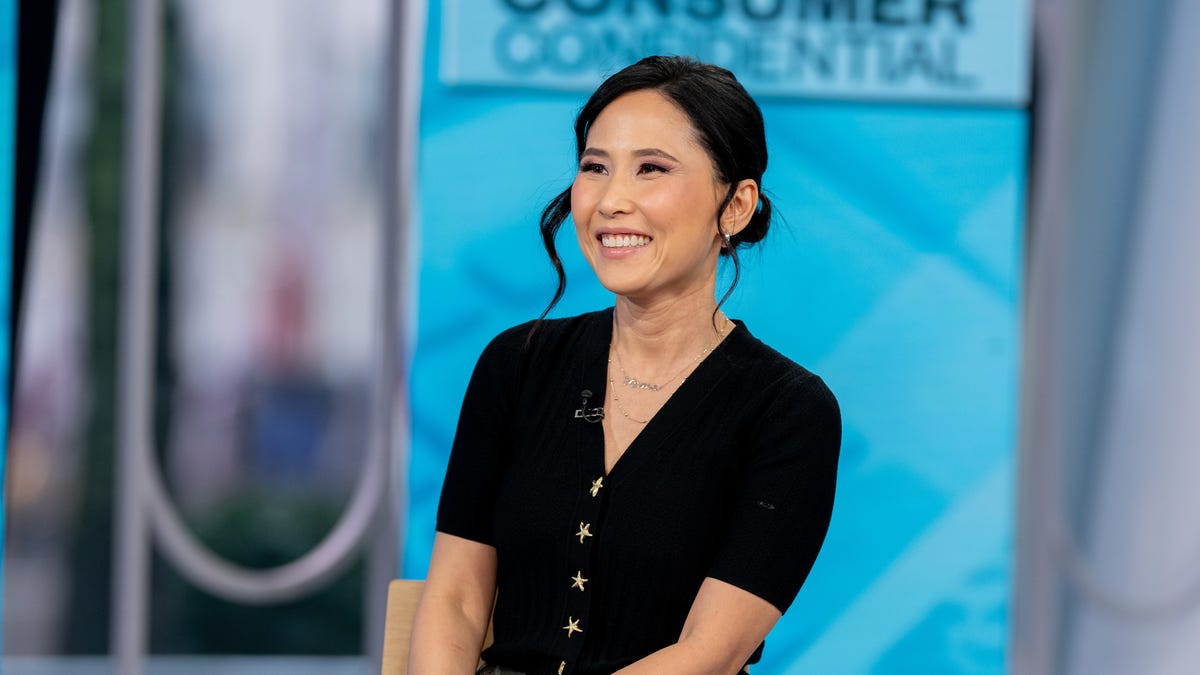For decades, Vicky Nguyen’s immigrant story wasn’t one her family often talked about. It was a “fact of life,” and not something to dwell on, she says.
But the NBC News anchor and chief consumer investigative correspondent is ready to change that. Her memoir “Boat Baby” (out now from Simon & Schuster) tells her story from Vietnam to 30 Rock, bringing readers alongside her parent’s immigration journey and her childhood in America with humor and heart.
In an interview with USA TODAY, she shares what it was like to turn the investigative spotlight onto her own family story.
It takes a village: Nguyen shares family’s journey to America
Nguyen’s family fled Vietnam in 1979, part of the mass exodus of “boat people” who left the country between 1975 and 1995. Nguyen was just 8 months old. Her parents departed in a small rowboat at night with the help of a smuggler, only a bag each and gold to appease robbers who they’d inevitably come across.
They eventually reached the coast of Malaysia safely, where they lived in a refugee camp for 10 months. Nguyen’s mother wrote an anxious plea to her American colleagues at Holt International, the nonprofit adoption agency where she worked. Two couples answered, and Nguyen says they “didn’t think twice” about sponsoring the Nguyen family and outfitting them with a furnished apartment in Oregon.
Decades later, Nguyen was able to bring those couples to the NBC offices, introducing them to “TODAY” show anchors Savannah Guthrie, Craig Melvin and Hoda Kotb.
“There’s so much in our family’s journey that is relatable. You don’t have to be Vietnamese and a refugee to recognize the love letter to America, the fact that this is a country where so much is possible, and so many people have done incredible things,” Nguyen says. “It helps to recognize that the diversity and the fabric of our country is what I think makes it so great, and I’m super grateful to be able to share the fact that my family didn’t do it alone.”
An American childhood
Growing up in America, Nguyen recalls being one of the only Asian kids in her school and often the only one “relatively fresh off the boat.” She faced racist taunts from white kids at the bus stop. Her classmates and teachers never pronounced her name, Yến, right. But even as her English improved, the other Vietnamese girls at school made fun of her formal way of speaking Vietnamese (she often only spoke to her parents), implying she was trying to be “an American white girl,” she writes.
Beyond the struggle to fit in, it was Nguyen’s parents who taught her optimism, resilience and grit. Being the “most American” in the family, her parents trusted and leaned on her judgment. They even let her lead the house’s decor, which she writes became “pure ‘Miami Vice’” under her direction, with teals and pastels everywhere.
During this time, her dad also wrote and self-published a guide book for other Vietnamese American immigrants with tips on how to open a bank account or deal with the post office. Nguyen says it feels “eerily similar” to what she does as a journalist, distilling information to help consumers live smarter lives.
“I realize now my dad was the original author in our family,” she says.
Nguyen started college as a biology student. With few Asian TV journalists to look up to, she writes that she didn’t realize it was a career she could have. In “Boat Baby,” she recounts meeting another Asian journalism student and everything changing. “Why not me?” she asks herself, a refrain she often heard from her parents in their early years in America. She was encouraged by mentors, including at Asian American Journalists Association conferences.
Diversity, immigrants are ‘our superpower,’ Nguyen says
Nguyen also shares the racism she experienced in her career beginnings, like strangers driving by and saying “it’s Connie Chung” as she worked or emailing the news station to ask “Why can’t she speak English?” even though she was.
And though Nguyen says she’s “never been one to lead with my identity,” that changed during the COVID-19 pandemic as anti-Asian hate crimes began to rise. She started reporting on them more, startled by the fact that “people who looked like our parents (were being) pushed over in the streets, attacked, beaten, killed, because people were wrongly associating any Asian American with the coronavirus.
“When I started reporting on this and felt the support of other people in my newsroom, people in the community, I realized it is important to bring all of the parts of you to the job, whether it’s you’re a woman, you’re a mother, you’re an Asian American because it does open doors to communities who will feel more comfortable talking to you,” Nguyen says. “You can get to the heart of a story better.”
Her parents may not seek the spotlight, but it’s a story she wanted to tell because, as she puts it, “My success is their success.” Spanning from the boat in Vietnam to her life as a mother, wife and journalist in New York City, Nguyen’s memoir is a testament to her parents’ strength.
“America is a tapestry of immigrant stories,” Nguyen says. “I would argue it is our superpower that we have so many diverse perspectives. We have the gratitude of people who come from another place and don’t take this country for granted and recognize that we can improve always, but so many things are possible in America that are not possible anywhere else. That’s why people die to come here.”
Clare Mulroy is USA TODAY’s Books Reporter, where she covers buzzy releases, chats with authors and dives into the culture of reading. Find her on Instagram, subscribe to our weekly Books newsletter or tell her what you’re reading at [email protected].

Leave a Reply